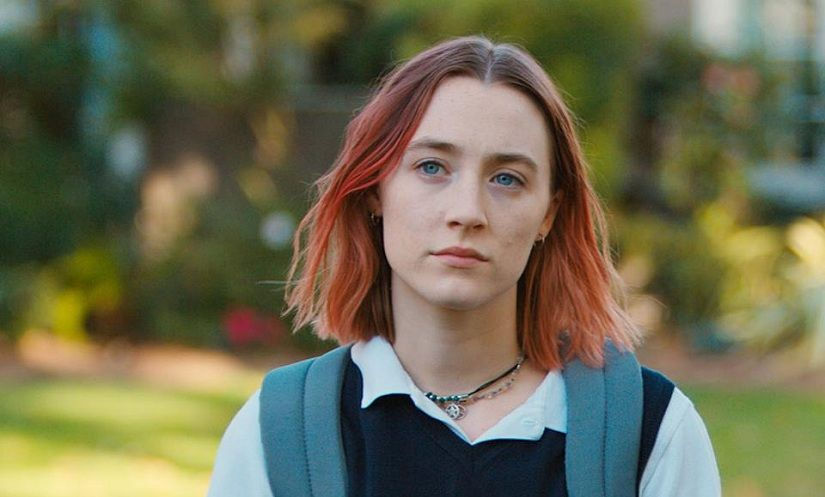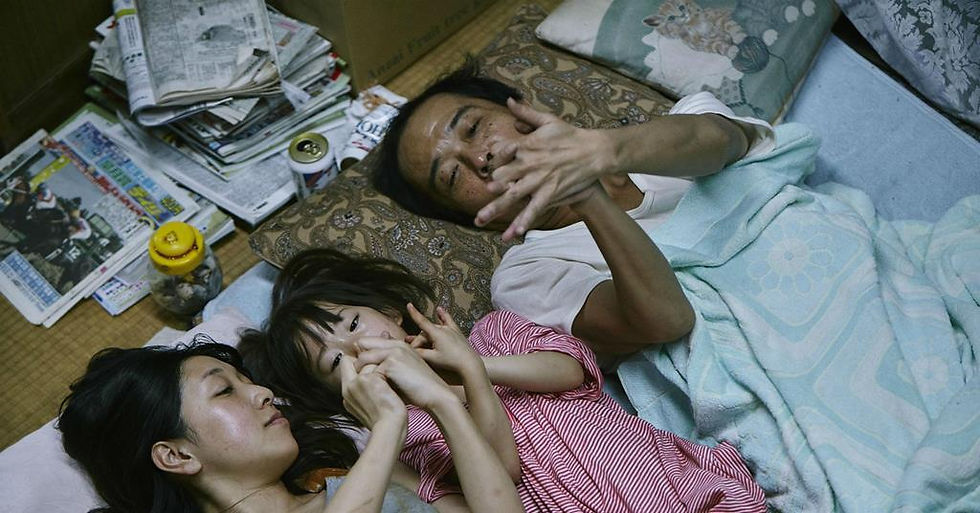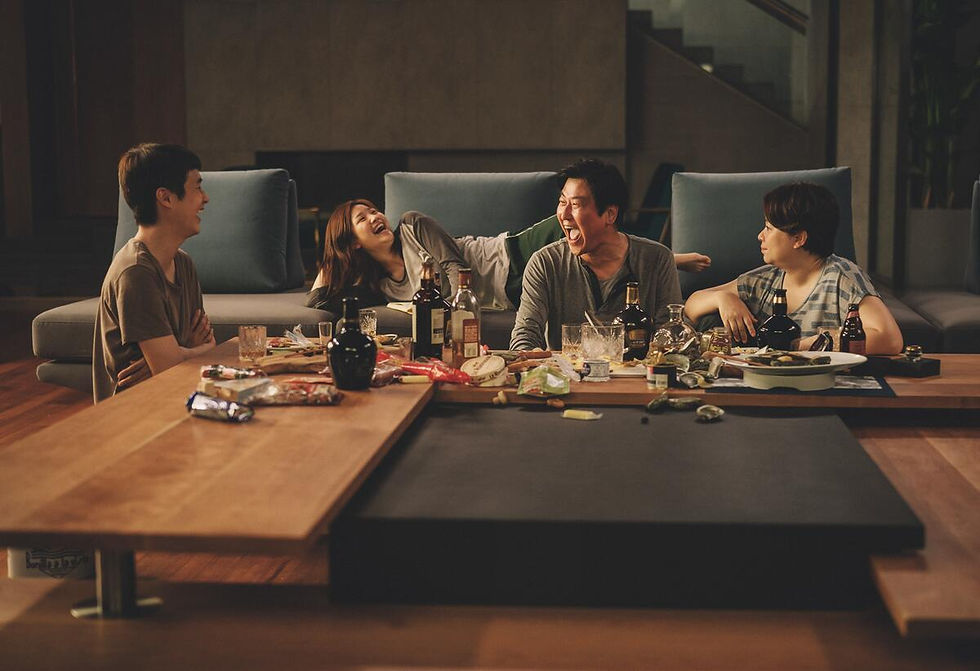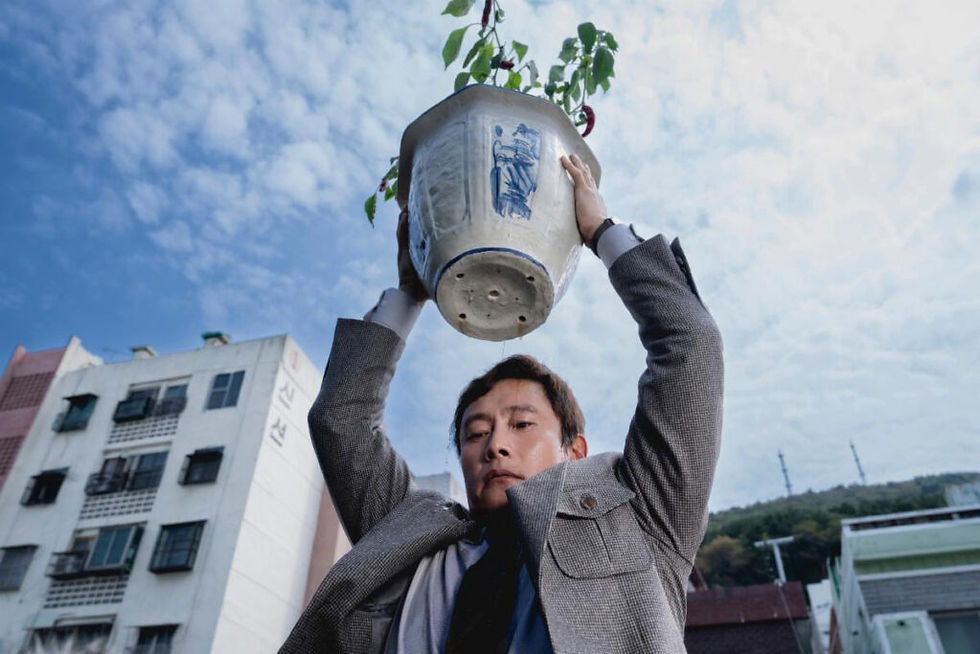20 Best Movies of the Decade
- Arm Jeungsmarn
- Jan 10, 2021
- 15 min read
It took us one year into the new decade to look at the old decade in retrospect. And if this vantage point reveals anything, it’s that films have become much more aware of their place in humanity. The 2000s was a decade of earnest creativity with many films that were indie because they had to be. No blockbuster filmmakers in the 2000s really wanted to be Charlie Kaufman or Noah Baumbach. We need to remember that while it was the decade where Avatar won the best picture, it was also the same decade where controversies erupted over including superhero films in the best picture category. In 2015, the Oscar was controversial for a very different reason, but let’s not do that detour.
In the 2000s, the realm of blockbuster flicks was a source of envy. Meanwhile, some genres seem to have effaced from the radar, for example, Fantasy. However, the blockbuster realm did not have a good long run as by the 2010s, it seemed to have fallen headfirst into a creative slump. The increased monopolization of this realm, specifically in the superhero genre, has a homogenizing effect on the blockbuster flicks we see nowadays. Hence, genres, where creativity is mandatory, is finally receiving some attention. Enter the era of indie flicks. It was definitely interesting to see blockbuster productions now starting to take cues from indie directors. Studios are becoming aware of this rising importance of the face of directors, producers and actors to film promotional and marketing success. They now have to factor in sexual harassment history, gender, sexual orientation or ethnicity when making decisions.
The films themselves were also affected in countless ways. We already said that blockbusters are more commodified now. Even when they incorporated indie elements, they are still commodifiable in their indie-ness. The fact is indie-ness has become an identity. Thus in many ways, it’s no longer indie. Or it’s indie in a way that is so self-conscious, that it deserves to be described as “pretentious”. Kinda what we’re doing here…
In many ways, this has led to more cautious experimentation. Films are more rooted in their identities, also tied to the social and cultural context in which it is produced. Anyway, the diversity of cinema through the 2010s will be on display in this list.
On that note, let’s see what we’ve got.

(Image credit: The New York Times)
20. Mad Max: Fury Road (2018)
Mad Max Fury Road is a true celebration of cinema. It’s visual. It grabs attention. And it’s artful without being pretentious. What makes this movie unique is how ephemeral it feels. When it’s over, it’s over. While this might be a minus point for some, for me it just makes the film that much more rewatchabe. I also have to give credits to George Miller for bringing this story to life. Everything from the production, the direction to the acting blends into a mosaic of images that freely yet confidently mash itself onto the screen like a cinematic Jackson Pollock.

(Image credit: Taalhuis Amsterdam)
19. A Separation (2011)
Unlike the previous entry, A Separation is anything but easy. The intertwining story of two couples caught in a legal battle over an accident may seem like a small story, but if you look deeper into the fabric of the story, you’ll notice emerging themes about class, religion, gender and culture- you name it. All this, set against the backdrop of modern-day Tehran, a place where tradition and modernity clash on a daily basis, it is just mesmerising. This movie shows how social, cultural and economic forces manifest in our lives, how the universal becomes particular.

(Image credit: Filmotomy)
18. The Wailing (2016)
If for nothing else, The Wailing is a representation of what Korean cinema brings to the table. At a time when Hollywood horror locks itself into repetitive frameworks of genres, cliches and audience expectation, Korea made horror so visceral it leaves you shaken to your very core. Only one movie from the indie side of Hollywood - Hereditary - contested this spot (it was so close… so we’re mentioning Ari Aster’s masterpiece right here as an honorary #18). In any case, The Wailing produces a unique experience: you want to stop watching, but you can’t take your eyes off the screen. The film feels just like the shaman ritual it portrays. It sucks you in and leaves you doubting, wondering, and by the end, profoundly injured without knowing what hit you.

(Image credit: A Might Fine Blog)
17. Lincoln (2012)
Lincoln is a therapeutic film for a decade like the 2010s. Masquerading as a biography, Lincoln is in fact a story about democracy. It’s about how democracy happens, why it happens and why it matters. Following a man who has all but becomes synonymous with good leadership, the film refused to glorify him. It also chooses not to over-explain him. It explores his complex thoughts, decision-making and yes, compromises in which he had to engage. It shows that legacy is difficult to come by. This movie contributes massively to the style of subsequent biographical films. After Lincoln, an individual is no longer viewed as a glorified person, but a complex legacy. And in this sense, cinema is not merely a reconstruction of history or a retelling of the individualistic myth. It investigates our relationships with the persons we glorify.

(Image credit: IndieWire)
16. An Elephant Sitting Still (2018)
This movie is almost the opposite of Lincoln. The film lacks the main character, the story feels immediate and atemporal. It follows four individuals making their way through a normal day in an industrial town in northern China. Their days are so miserable and they don’t know why. Everything seems to be out of their control and nothing seems to mean anything. Urban life and the emptiness of modernity became a villain in this story as we watch four people drift around in a perpetually empty city, under a concrete-coloured sky. The filmmakers chose to show us this for over three hours. The result is an incredibly damaging experience. You absorb the atmosphere of the city and the feelings of the characters like a sponge. While many films in the 2010s gave us social commentaries, this movie shows us how society feels.

(Image credit: NPR)
15. The Big Short (2015)
Speaking of social commentary, it is approached in a different way in Hollywood. Adam Mckay is a rather generic filmmaker. Perhaps the least talented of all the ones mentioned here. However, his quasi-documentary, quasi-comedy/ dramedy The Big Short saw him tapping into the most traumatic experiences in contemporary American history - the 2008 financial crash. To see Mckay break out of his usual mould, finding spirit and humor in such a tragic chapter of America, is like seeing an underdog win the race. And it feels like a race that had to be won. One can’t help but root for Mckay. After all, this is a movie about how fucked-up American capitalism was (and still is). With the help of a truly unforgettable cast ensemble, he has aced through the finishing line in flying colors.

(Image credit: The Young Folks)
14. Miss Hokusai (2015)
It has been five years since I saw this film and it is still an enigma to me. This is an animated film about the daughter of the famous Japanese painter Hokusai. And that’s pretty much all one can say about it. It follows her as she struggles with things any human would struggle with. By the end, it’s unclear what the film is saying. What you’re left with though is an enigmatic film with a beautiful face. The animation work in this film rivals that of Miyazaki and the groundbreaking popular arts of Shinkai. There’s something deeply unsettling but also gorgeous about the film. This beauty emerges from the synergy between the detailed visual and the ambiguous story. There are sequences in this film that reach impossible depths of the human soul and others that are deliberately confusing. The resulting experience is like staring at the Mona Lisa, deep into her smile. It’s the most endearing kind of beauty, the kind that you don’t understand.

(Image credit: Storylog.co)
13. A Ghost Story (2017)
As Hollywood was plunging into the deep end of shallow commercialism, A Ghost Story is truly a breath of fresh air. This is a film that is indie not because it wants to look indie. It’s indie because it has to be and because there is virtually no other way to effectively tell this story. To say anything about the plot of this movie is to take away from the experience. Suffice to say, this is a movie about love, grief and the passage of time. And like a true indie film, it explores all these massive themes with such a small toolbox. It is also without a doubt the saddest film I’ve seen in the past decade. But it’s the kind of sadness that’s also tender. It doesn't leave you heaving in pain. It leaves you hollow but overwhelmed, deeply remorseful of one’s existence but also grateful of every passing moment.

(Image credit: Eventfinda)
12. The Wind Rises (2013)
In these rankings, we often end up with at least one film that seems to exemplify the filmography of a classic master director. And in the 2010s, one could go for The Irishman (yeah, this is another honorary mention), but we had to give this spot to Hayao Miyazaki’s absolutely brilliant and unendingly beautiful swan song, The Wind Rises. Whether or not he ends up making another movie, it’s hard to think he’ll ever top this one. This movie is about the dilemma of living. It’s about the pathos of things and the emptiness of being. And Miyazaki wrapped all these deep philosophical inquiries into a gorgeous hand-drawn animation with some of the best flying, dream and fantasy sequences I’ve ever seen on the big screen. When this film gets emotional, it is done subtly so that no single moment overtakes the long-lasting effect of the questions it leaves us with. By the end of the movie, you find yourself caught between overwhelming warmth and the cold uncertainty of life. The Wind Rises manages to capture that enchanting middle-ground that words simply cannot define.

(Image credit: Culture Trip)
11. Uncle Boonmee who can recall his past lives (2010)
Of all the films on this list, this is probably the most culturally esoteric. The story this movie tells, or at least pretends to tell, is quite specific to Thai people, or Thai history. But even then, it’s unclear if most Thai people will understand what it’s saying. But then again, does it even matter? This movie won Cannes because it manages to explore the deepest themes understandab;le to all humans, from death to dreams to nature and society. But it’s also a film about communism in Thai history, Buddhism and its relation to class, memory and society as well as the legacy of an incomplete and silent civil war. Uncle Boonmee paints with broad strokes, but somehow manages to convey minute details in between gaps. It also transcends the illusion of cinema, blurring the line between truth and representation, between dream and reality. Uncle Boonmee makes nothing feel like everything. Society permeates the individual and the death of an enigmatic uncle becomes the hidden story of a whole nation.

(Image credit: bottomline)
10. The Social Network (2010)
This won’t be the last time we call a pairing a match made in heaven, but it is definitely a memorable one. Whoever thought of the idea of putting David Fincher and Aaron Sorkin in the same room deserves an oscar in their own rights. The Social Network is a story about someone with many friends and very little connection. Because of that reason, you could easily view this as the story that defined the 2010s. The dialogue moves fast and the camera movements are lively. But both are sterile. And in a really good way. Fincher and Sorkin joined forces to create the most memorable characters, who in their struggles to succeed, forget to find the meaning in the process. Every bit of Sorkin’s script conveys this. And of course, Fincher directing amplifies it like a microscope. The result is an endlessly entertaining exploration into the dilemma of technology and human connection. Coming at the beginning of the decade, it felt by the end, like a prophecy that became true.

(Image credit: Reel Librarians)
9. Columbus (2017)
It’s unusual for a debut film to make it this high on an end-of-the-decade list, but I couldn’t help it. Columbus is a perfect film. It is a movie version of an excellent craft beer or an unforgettable home-cooked meal. It’s hard to say why this movie stuck with me so much. Is it the calm, melancholic atmosphere? Is it the subtle complexity of the cinematography? Is it the masterclass performances by John Cho and Haley Lu Richardson? I don’t know for certain, but it’s a good guess to say that it’s a combination of all those things. Watching Columbus is like observing a nice landscape. It seems to do very little but it absorbs your experience and projects it back to you. As you watch two complete strangers bond over arts and form connections in the most unlikely places, you are beckoned to consider the beauty of human connection. Human society, like an architectural structure, reflects the past and projects the future. Yet we don’t often see it. This movie asks us to look closer, so we might just see what we’ve been missing.

(Image credit: BFI)
8. Spotlight (2015)
Okay, so the past few picks have been a bit philosophical and artsy, so this is the right time to bring it back to the dirty and gritty ground. Spotlight is a film about real-life heroes released in the middle of the decade of capes and cowls. On one hand, seeing journalists earnestly reporting stories make you nostalgic of times before clickbait ruled the world. Alternatively, it’s just so refreshing to see good people trying to do good things in the world. And of all the directors on here, Todd McCarthy truly disappears behind his camera. He directs with a workman's attitude, allowing the story to speak for itself. The boredom of investigation, the frustration of dead ends and the claustrophobia of silenced truth are not jazzed up or emphasized. They’re just there. As you observe these women and men claw their way in through all these works in the name of justice, you’re left with a vicarious sense of pride in the human endeavor. More than any other film of the decade, Spotlight restores your faith in humanity.

(Image credit: TVOvermind)
7. Ladybird (2017)
There’s a lot of competition for the best quirky comedy of the decade. And while Noah Baumbach has always dominated this genre (Marriage Story was literally number 21), he has a competition close by. The incredible Greta Gerwig is a director and a writer with an eye for dialogue and an eye for incredible performances. Her debut film Ladybird feels more like a career-defining masterpiece. Greta Gerwig and Saoirse Ronan look to be another case of a perfect pairing. Thanks to the sheer force of said collaboration, Ladybird is emotional, humorous and unflinchingly real in new and surprising ways. It tells the classic coming-of-age story but with a unique sense of understanding and sensitivity to it. It shows the private life of a person, not simply to draw laughs, emotions or lessons. But rather the film is trying to understand the character. Gerwig’s camera feels less like an X-ray machine that gives a complete and naked view of who the character is. Ladybird sets a new standard for quirky movies and coming-of-age stories. Seeing this on-screen feels like watching a new gunslinger walk into a cowboy bar. As soon as it happens, you know the real story’s just beginning.

(Image credit: Hardwood or Hollywood)
6. Hell or High Water (2016)
This is probably the most surprising entry on this list. It is definitely the movie that has grown on me the most. Make no mistake, it was an amazing film when I first saw it. But in retrospect, it is one of the clearest examples of a pitch-perfect film I could think of. Everything in it works to enhance the experience, from the incredible ensemble cast to the unique writing of Taylor Sheridan or the subtle but pulsating direction of David Mackenzie. In what Ryan Hollinger termed “The Frontier Trilogy”, Sheridan got a great director in Sicario, but his writing was severely overshadowed. His directorial debut Wind River was good but clearly inexperienced. With Hell or High Water, David Mackenzie is absolutely excellent but not stylish enough to take over Sheridan’s raw and unforgiving dialogue. The result is the epitome of the American frontier in the 2010s. The film explores the underbelly of American life through a distorted version of the cowboy story. It is a film that is anti-Hollywood in every sense of the word. In a decade of commercialism and monopolies, it was a breath of fresh air.

(Image credit: Newsroom)
5. Blade Runner 2049 (2017)
Alright, at this point - the top five of the list - it’s a neck to neck competition. Each of these films has at one point occupied the top spot for variously different reasons. And the first of this was Denis Villeneau’s incredible sequel, Blade Runner 2049. Villeneuve cemented his name on the director’s hall of fame by overtaking Ridley Scott’s classic. He does this by doing what a sequel should do, he expands on the themes and philosophy of the original. He recognizes that good stories are not about crossovers and easter eggs. Good stories are about the progression of themes. Blade Runner asks what would it be like to live in a society where machines and humans stood side by side. 2049 asks the next logical question, what does it even mean to be human. Villeneuve helms his camera patiently and allows the story to unfold at its own pace. He embeds philosophical meanings into the visuals of the movie. He eschews long exposition for moments of deep philosophical pondering. 2049 is the best sci-fi movie of the decade because it nails what Sci-Fis does best: asking big questions but providing just glimpses into the complex answers. It leaves us wondering about the universe and our place in it.

(Image credit: Philosophy in Films)
4. Arrival (2016)
Yep, Denis Villeneuve made two movies that not only made the top 20s but cracked the top five. Here it’s finally a good time to talk about Villeneau’s undeniable genius. In Arrival, he films perhaps the most nebulous thing you can think of: communication. Villeneuve cracks an essential code of cinema, that is, filming the unfilmable. And like in his other films, he takes the concept to the next level. For Villeneuve, communication is portrayed as the most profound thing humans can achieve. It’s what unites humans as well as other species. But he also shows how difficult communication can be and how much we take it for granted. He uses thrilling sequences to illustrate the complexity of communication. He also plays with editing and sequencing to tell a story that is both emotional and epic at the same time. It is as mind-blowing as it is transcendental.

(Image credit: Screen Daily)
3. Shoplifters (2018)
It’s such a cliche to say that a film has stolen my heart, but there is no other way to describe what Shoplifter did to me. Hirokazu Kore-eda’s masterpiece follows a makeshift family that steals for a living. While the film interrogates social issues and difficult moral dilemmas, the heart of the film lies in its portrayal of genuine people. Rarely have I enjoyed spending my time with a film this much. I did not and was not thinking about the plot or characters. All that seems to matter were moments of happiness that rolls upon and retreats from the screen periodically like ocean tides. The odd thing is that you don’t necessarily feel like the film is saying something. You could read a lot of social messages into it. You could analyze the choices of the characters involved. But the film beckons you to look past all those conditional things and see the humans on the screen. It is truly the most emotional film of the year, in every sense of the word. Every kind of happiness or spectrum of sadness and frustration are at one point captured on screen. At a certain point, you become lost in the world of this family, you live with them through the film. You are completely absorbed to the point that the world around you feels unreal. Think about it: this awe-inspiring power of cinema is illustrated through an indie film about a family that steals.

(Image credit: NPR)
2. Inside Llewyn Davis (2013)
The Coen Brothers have made a lot of movies over the years, so it’s not a surprise that a few gems such as these might be overlooked from time to time. And yet, I can’t express how criminally underrated or at least under-watched Inside Llewyn Davis actually is. The story of a struggling musician and a cat that wouldn’t stay is performed and captured with a mixture of nuance, subtlety and unforgiving dark comedy. The result is an unflinching look into the human souls, seemingly unreachable but glaring with relatable emotions. While we don’t want to be Llewyn, we certainly understand his feelings. While he never grabs a drink and tells us stories around a bonfire, we feel like a friend to him. The Coens see a portrait of a man as a comment on the cyclical nature of life and the brutal mundanity of existence. In a film like this, you don’t know if you should laugh or cry. And that’s the greatest feeling in the world.

(Image credit: DNyuz)
1. Parasite (2019)
When the 2020 Oscar announced this film as the Best Picture, it felt like justice has prevailed on planet earth. For once, the Oscar has chosen a deserving film - not only the best film of that year but in my view, the best film of the decade. Parasite is an instant classic that will be studied by everyone from film students to sociologists. This dark comedic thriller uses all the tools of cinema to explore class and society in wild and creative ways. Not only is it a great analytic piece, but it’s also an unending enjoyable experience. The balance between enjoyability and nuance is what pushes it so high on the list. However, the reason why it snatches the number one spot is the masterful filmmaking that is on display every second of the film. Every shot, every sequence, every choice of music reflects exactly what the director wanted to say. Every cut and montage brings deeper meanings, creating layers of philosophical undertones that leave you thinking, doubting and philosophizing even if this was your fifth watch (disclaimer: true story). This movie is undoubtedly director Bong Joon Ho at the absolute peak of his career. It feels to us that Bong looked back at the 2010s and saw a decade of commercialism, crisis and chaos. And the only way he could respond was to make a film that dissects the flaws and misgivings of human society but also emphasizes the individual roles we play in said system. Parasite is a film that is well-made, enjoyable, nuanced, analytical and unpredictable. But most of all, it is the most important film in the past 10 years.








Comments